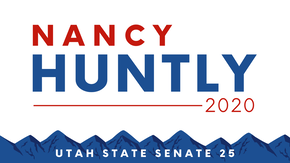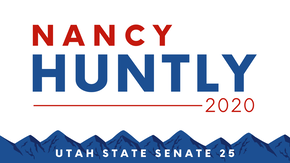0 Comments
Fifth in a series of blogs from the recently Cache Valley Chamber of Commerce Luncheon. Today's topic - housing costs.
QUESTION #4: How do you propose we balance continued cost increases in housing against the slow rise in wages?
This is a pressing problem for Cache Valley. We’re not a generally high-income community, and we have a growing problem of housing affordability. I don’t think this is a problem that can be solved by just an increase in number of houses or new high paying jobs. Those won’t address the whole problem. Two areas that need additional thought are the very low wages at the bottom of the wage scale, and the gap between the wages or salaries of moderate-income workers, which includes many who work in essential services, and what one needs to buy a house in Cache Valley. People employed in essential services include nurses, police, firefighters, social workers, teachers, employees of non-profits, and many others. If we want people employed in essential services to be able to afford to live here, we need to build the kinds of housing they want and can afford. The same applies to many young families; we need to build the kinds of housing they want and can afford or they won’t be able to live here. I have talked with a lot of people about housing affordability, which is not my area of expertise, and they have good, new ideas about how to make progress. These are local community decisions, and this is another area where we need better public dialog and better ability to work together. We need to talk seriously about the problem and about possible solutions. And then we need to act together. The League of Women Voters Education Fund has a great voter resources site, including a four question Q&A, reproduced below.
https://onyourballot.vote411.org/candidate-detail.do?id=22698044 The Utah constitution allows citizens to make laws through an initiative process. What is your opinion of the initiative process and would you change it, if you could? Nancy Huntly: I would not change the initiative process, or the related referendum process. These provide balance of power, a foundation of governance for both Utah and America, and compel the legislature to pay attention to what people care about. The initiative process allows Utahns to propose a new law; the referendum process allows Utahns to ratify or reject legislature-proposed changes to the Utah Constitution and to reject bills passed by the legislature and prevent them from becoming law. Both ballot initiatives and the referendum process have been used recently, to make laws that Utahns want and to prevent a law that Utahns did not want. These processes are keeping the legislature of Utah, and Utah’s laws, better in tune with what Utahns want. What actions should Utah take to promote clean air and mitigate the effects of climate change? Nancy Huntly: Many actions that Utah and Utahns can take to reduce greenhouse gas emissions will both promote cleaner air now and prevent longer-term climate change. Changes to reduce greenhouse gas emissions can bring significant economic benefits to Utah, and Utah can lead in this transformation. Useful changes, many of which have begun and can be accelerated, include: Making Utah’s emissions-reduction goals more aggressive, Increasing the use of clean energy sources, Increasing the use of electric vehicles, Decreasing unnecessary travel for work, Encouraging energy efficiency, Prioritizing economic development assistance in rural communities where energy transitions occur, Using better planning to build infrastructure that is less dependent on transportation, more energy efficient, and less polluting, and Pursuing political consensus and action on carbon pricing to reduce greenhouse gas emissions. According to the Kem Gardner Institute, projected population growth in Utah is an increase from 3 million (in 2015) to 5.8 million by 2065. Can we maintain the quality of life we value with this amount of growth — particularly on the Wasatch Front? What about water, transportation and schools? Nancy Huntly: Senate District 25 benefits from abundant public and open land that makes retaining quality of life easier, preserving beauty, access to outdoors, and the foundation for tourism, agriculture, and recreation. Water: Utah is an arid state and we must be realistic in our assessment of future water availability and conserve as much as we can. Trying to build our way through water scarcity is expensive and often not possible. Transportation: We can update our infrastructure to maintain quality of life. We can build well-thought-out infrastructure, from walkable neighborhoods to efficient and non-polluting transportation, and make jobs less reliant on transportation. Just building more roads is not cost-effective or efficient. Schools: Utah’s investment in public education needs to increase, and must rise as number of students rises. We must do better for our young people to become self-reliant and contribute fully to our communities. Many Utahns go to work when sick, potentially exposing many other people to infections. This is because nationally, 40% of service jobs—retail sales, food service, child care, etc.) do not offer paid sick leave and almost 12% of Utahns lack health care insurance. How can this problem be addressed? Nancy Huntly: Sick workers should not be pressured to go to work. The Families First Coronavirus Response Act requires smaller businesses to provide paid sick leave and provides them a tax credit to offset costs. When it expires in 2020, Utah could take similar action to support employees and small businesses. Some Utahns are not being Covid tested and treated (and going to work) because of the costs. There are several ways that Utah can ensure that the most vulnerable Utahns have access to health care. Because of COVID-19, the state has suspended requiring workers to complete training and job search programs to gain access to Medicaid; this can be continued. Also, about 50% of uninsured Utahns are eligible for expanded Medicaid but don't apply due to excessive requirements and paperwork or to lack of awareness; Utah can reduce those barriers. For those not eligible, we can consider a state reinsurance program or tax credits to subsidize the cost of marketplace insurance. The Utah State Constitution reads, in part, "Both male and female citizens of this State shall enjoy equally all civil, political and religious rights and privileges." The Equal Rights Amendment to the Constitution of the United States reads, “Equality of rights under the law shall not be denied or abridged by the United States or by any State on account of sex.” Should Utah ratify the ERA which expresses the same view as the Utah Constitution? Explain your position. Nancy Huntly: Yes. Utah should affirm its commitment to equal rights for all by ratifying the ERA. Some object to ratification of the ERA now because the ERA amendment process might have to be restarted. Nevertheless, Utah should be on record as supporting the amendment of the U.S. Constitution to state clearly that women, as persons, are entitled to full fair treatment under the law of the United States of America.
Fourth in a series of blogs from the recently Cache Valley Chamber of Commerce Luncheon. Today's topic - growth in Cache Valley.
QUESTION #3: With growth projections for Utah and Cache Valley, how do you propose we balance growth with infrastructure needs and still continue the quality of life we have currently?
Three points: Build smart; Keep and steward our water; Keep and steward our public and agricultural lands
Third in a series of blogs from the recently Cache Valley Chamber of Commerce Luncheon. Today topic - Recovering from the pandemic.
QUESTION #2: Since some sectors of Utah’s economy have been decimated like tourism and others, how do you propose we go about helping these businesses and organizations?
|
Archives
October 2020
Categories |

 RSS Feed
RSS Feed
